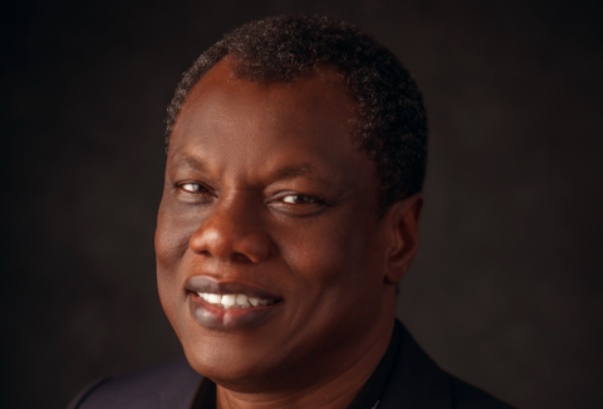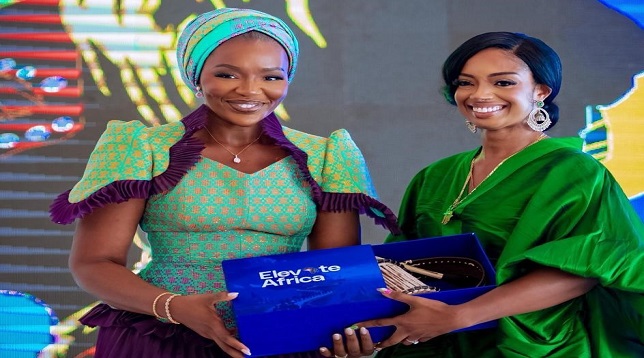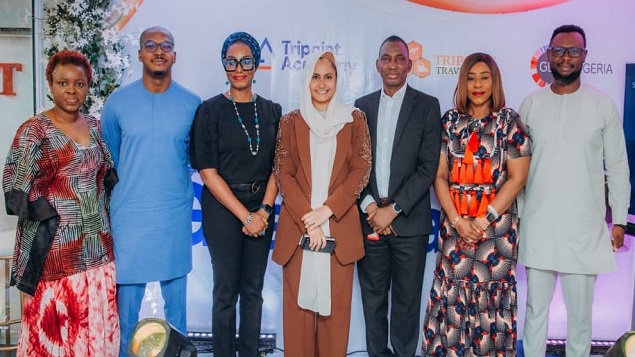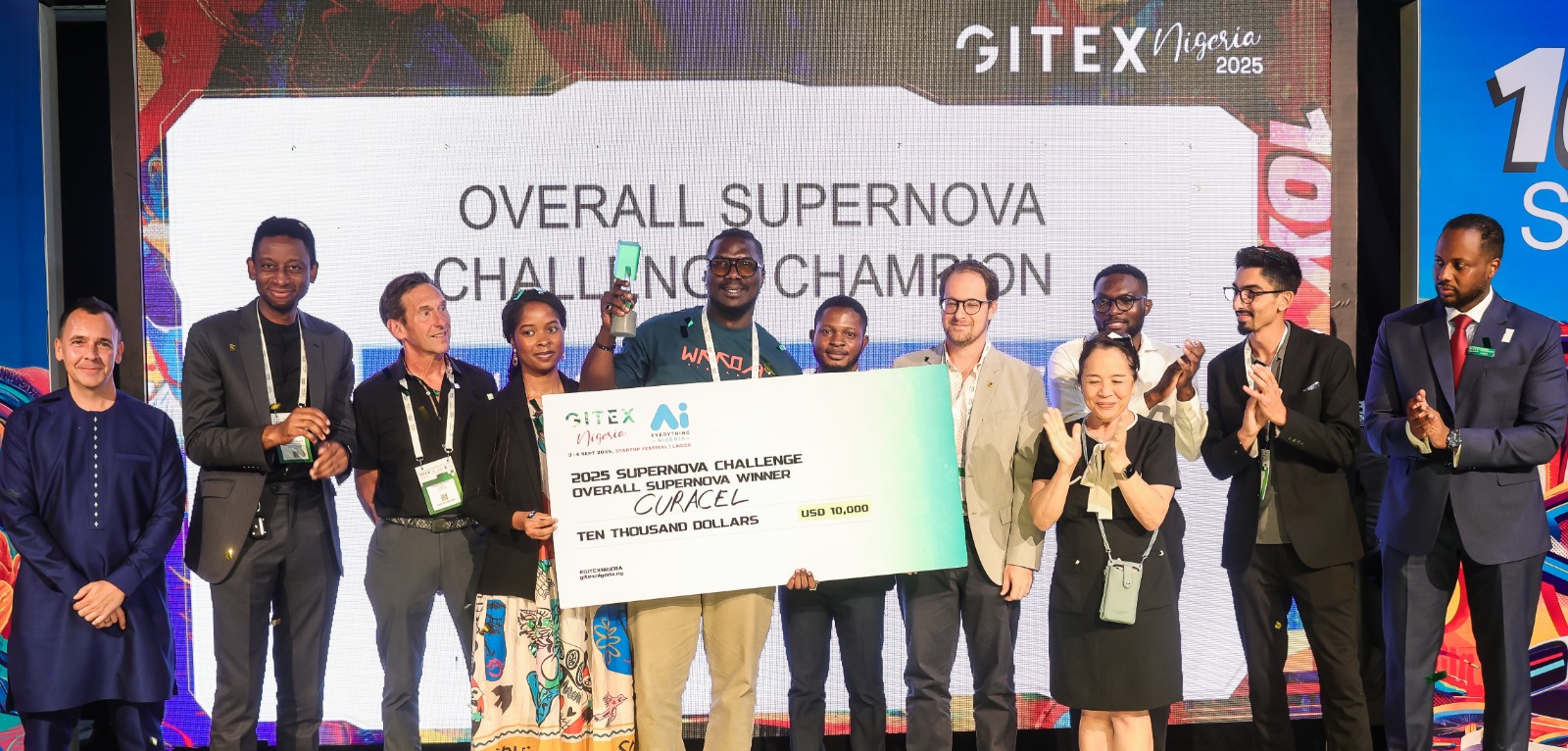General News
Navigating Away from the Abyss in the 2023 Nigerian Presidential Election

By Austin Okere
Reading about the post-2023 Presidential election discourse in Nigeria is exasperating. The politicians have successfully steered the discourse away from logical discussions about our country’s development to emotional and divisive topics such as tribalism and religion. This tactic has been used to maintain the status quo by dividing the population.

People are willing to overlook the truth and blindly follow their tribal or religious affiliations. We have all been manipulated and will continue to be until we can break free from this narrow-minded way of viewing national issues.
History has taught us that following the paths of ethnic and religious bigotry leads us to no viable destination. The Rwandan Genocide serves as an example of the tragic outcome of such paths.
The genocide against the Tutsi in Rwanda, also known as the Rwandan genocide, occurred during the Rwandan Civil War between April 7 and July 15, 1994. Over the course of about 100 days, armed Hutu militias killed members of the Tutsi minority ethnic group, as well as some moderate Hutu and Twa. The most widely accepted scholarly estimates put the number of Tutsi deaths between 500,000 to 662,000.
The Rwandan Patriotic Front (RPF), a rebel group mainly composed of Tutsi refugees, invaded northern Rwanda from Uganda in 1990, sparking the Rwandan Civil War. The conflict continued for three years without either side gaining a decisive advantage. In an attempt to end the war peacefully, Hutu President Juvénal Habyarimana signed the Arusha Accords with the RPF on August 4, 1993. However, Habyarimana’s assassination on April 6, 1994, created a power vacuum and ended the peace accords. Genocidal killings began the following day, initiated by majority Hutu soldiers, police, and militia who murdered key Tutsi and moderate Hutu military and political leaders. Despite the worldwide shock caused by the scale and brutality of the genocide, no country intervened to forcefully stop the killings.
I cite this example because of my belief that if we continue down the path of ratcheting up the caustic rhetoric that have pervaded the polity in the recent weeks, a similar outcome may not be far-fetched.
On the occasion of the one-year anniversary in office of Prof. Charles Soludo, Anambra State Governor, on March 19, 2023, Former Nigerian President, Olusegun Obasanjo condemned the anti-Igbo sentiments in Nigeria, which he called “Igbophobia”. In this context, It is important to recognize that the following constructs should not be viewed as interchangeable: Peter Obi, the Labour Party, the Obidient Movement, and the Igbo.
It seems that some individuals are mistakenly perceiving them to be one and the same, but this cannot be further from the truth. Here are the reasons why:
- Although Peter Obi is the presidential candidate of the Labour Party, the party is not defined by any single individual. It is a diverse party with members from different tribes such as Hausa, Fulani, Yoruba, Igbo, and others who all share the party’s goal of actualising a mandate which they believe has been denied them by a flawed electoral process through legal means. It is unfair to single out the Igbo people in this regard.
- The Labour Party includes people who are not Igbo, just as there are Igbo individuals in other parties besides the Labour Party. Die-hard Igbo supporters can be found in the All Progressives Congress, Peoples Democratic Party, and other parties, just as die-hard supporters of other tribes can be found in the Labour Party. The leadership of the Labour Party cuts across the diverse tribes in Nigeria.
- The Obidient Movement includes individuals who are not necessarily associated with the Labour Party, such as Benue State Governor Samuel Ortom, a PDP Stalwart, Aisha Yusufu, the renowned activist, and many others. This movement represents the desire for change in Nigeria and a departure from the status quo that has led the country to this point. The majority of the youth population identifies with this movement, and it includes people from all tribes. During the #EndSARS protests, they spoke out for better governance and were urged to become more engaged in the political process, which they have done.
- The Igbo people are an integral part of Nigeria, just like the Yoruba, Hausa, Fulani and other tribes. They transcend Peter Obi, the Labour Party, and the Obidient Movement. Failing to recognize these distinctions could lead to a dangerous blanket hatred against the Igbo people.
There are good and bad people in every tribe. Removing all Igbo individuals from Nigeria would not solve the country’s problems, just as removing individuals from any other tribe would not either. The current atmosphere of suspicion and fear between tribes is concerning. According to Saint Thomas Aquinas “Fear is such a powerful emotion for humans that when we allow it to take over us, it drives compassion right out of our hearts.”
It is not uncommon for election results to be disputed if there is a perception that the process was unfair. In such cases, the electoral laws provide for aggrieved parties to seek redress through the electoral tribunals and the courts.
We can draw valuable lessons from the examples of Kenya and Ghana. In Kenya, the Supreme Court nullified the results of the presidential election, while in Ghana, the Supreme Court upheld the results. These two cases demonstrate how electoral disputes can be resolved through legal means, and how important it is to have independent and impartial courts that can provide oversight and ensure the integrity of the electoral process. It is important for all parties to respect the rule of law and abide by the decisions of the courts, regardless of whether they agree with the outcome.Top of Form
On September 1, 2017, the BBC news site reported that the Supreme Court of Kenya cancelled the country’s presidential election held on August 8, 2017, citing irregularities, and ordered a new election to be held within 60 days.
The incumbent president, Uhuru Kenyatta, was declared the winner by a margin of 1.4 million votes by the election commission. However, the opposition leader, Raila Odinga, accused the commission of corruption and demanded resignations and prosecutions. President Kenyatta respected the court’s decision but called the judges “crooks.”
The annulment of an African presidential election as a result of an opposition court challenge appeared to be unprecedented. The Chief Justice, David Maraga, said that the election was not conducted according to the constitution and declared it “invalid, null and void.” The vote had raised fears of major political violence, as happened after a disputed poll in 2007. President Kenyatta called for calm and respect for the rule of law.
In contrast to Kenya, Ghana’s Supreme Court on March 04, 2021 upheld the victory of President Nana Akufo-Addo in the December 7, 2020 presidential election. Despite allegations of irregularities made by his opponent, former President John Mahama, the court found no merit in his claims and ruled in favour of Akufo-Addo, who had received 51.59% of the vote to Mahama’s 47.37%. Although Mahama accepted the court’s decision, he expressed disagreement with the trial process and ruling. Notably, this was only the second time that a Ghanaian presidential election had been formally contested by the losing candidate, with the previous case in 2012 involving a challenge by Akufo-Addo against then-incumbent Mahama’s victory.
From the above examples, it is important for any democracy to have a transparent and fair electoral process that is free from irregularities and malpractices. In cases where disputes arise, it is important to have an independent judiciary that can adjudicate such disputes based on the law and the evidence presented, rather than on political considerations.
Ultimately, the success of any democracy depends on the ability of its citizens and leaders to work together in good faith towards a common goal. This requires a commitment to the rule of law, respect for human rights, and a willingness to engage in constructive dialogue.
We need to pull back from the abyss. Every Nigerian should have the freedom to aspire to their greatest aspirations and the pursuit of happiness in any part of the country where they choose to live, as enshrined in our constitution. It is crucial to focus on the values that unite us as Nigerians, such as our shared history, culture, and aspirations for a better future.
This can help to build a sense of national unity and strengthen our democracy. It is also important to address the root causes of the current tensions and conflicts in the country, such as social inequality, economic hardship, and political exclusion. By addressing these issues, we can build a more just and equitable society that works for the benefit of all Nigerians.
The opinions expressed here are solely my own and do not represent any institution to which I have direct or indirect ties.
Austin Okere is a thought leader, and business mentor. Currently an Entrepreneur-in-Residence at Columbia Business School, New York, Austin has also facilitated at the United States International University in Kenya and has been appointed to the Advisory Board of the Global Business School Network in Washington in recognition of his contribution to the development of business education and knowledge transfer in Africa.
General News
Queen Simone Speaks on Economic Empowerment @ Women Allying Women Conference 2025

HM Queen Wa Arian Simone, CEO of the Fearless Fund and founder of Fearless Freedom, joined women leaders at the Women Allying Women (WAW) Conference on Thursday last week in Cape Coast.

The annual gathering, convened by Her Royal Majesty Olori Atuwatse III (Queen Consort, Warri Kingdom, Nigeria), carried the theme “Collective Power, Lasting Impact: Women Leading Ghana’s Sustainable Transformation.”
She participated in a panel session “From the Crown to the Boardroom: Transgenerational Wisdom for Ghana’s Transformation,” alongside eminent women leaders who shared perspectives on how tradition, governance, and intergenerational wisdom can shape the future of Ghana and Africa at large.
“As an African Queen committed to women’s empowerment and fair access to capital, being part of Women Allying Women is not only purposeful, but it is also a divine alignment. This is more than a gathering; it is a diasporic and royal bridge rooted in legacy and destiny. I count it a privilege to do God’s work in the earth, together and in fellowship,” said HM Queen Wa Arian Simone, expressing her delight at being part of the conference
The conference featured an exceptional lineup of women leaders, including Ambassador Elsie Appau-Ku Essi, Technical Adviser at the Ministry of Foreign Affairs and Regional Integration, Ghana; Mrs. Maame Efua Houadjeto, CEO of Ehub Ghana; Ms. Hayat Asckhar, lawyer and Managing Partner at Ethereal Limited; Mrs. Baaba Ankrah, CEO of GIBS Café; Petra Aba Asamoah, General Manager at Media General Ghana; Angela Bamford, media personality and entrepreneur; Ms. Arabba Koomson, journalist and life coach; and Stephanie Busari, journalist and CNN Bureau Head, Lagos.
HM Queen Arian Simone’s participation reaffirms Fearless Freedom’s global mission to stop economic inequality and support economic freedom, champion financial inclusion, amplify voices and opportunities for all across the continent and beyond.
General News
Tripoint Travels Launches Internship Programme to Tackle Youth Unemployment

Tripoint Travels has taken the bold first step in addressing one of Nigeria’s most pressing challenges: Youth unemployment, unemployability and underemployment. Through its newly launched Tripoint Academy Internship Programme, the organisation is pioneering a model that trains young Nigerians to be truly employable, while also offering them real job opportunities.

The first cohort of the six-month programme graduated this weekend in Lagos. Out of seven interns, three have already been offered jobs at Tripoint Travels, while partner organisations are considering others.
Mrs Shuhda Muhammed, Managing Director of Tripoint Travels and founder of Tripoint Academy, described the programme as a prototype designed to prove that Nigerian Youths, when given the right skills and guidance, can become assets to any industry.
“I came to the realisation, being an entrepreneur myself and running Tripoint Travels, that we need to have good employees. What that means is, we need intrapreneurs in our organisations for us to be able to grow, scale up and thrive in any industry. And one of the challenges we’ve been facing as entrepreneurs is employment, employability, because most of the youths out there are already educated.” She said.
The MD of Tripoint Travels has referred to this programme as more than an internship – but as the start of a movement. Mrs Muhammed hopes to see more organisations adopt this model and has urged them to grow talents to grow a workforce of employable young Nigerians who are ready to stay, work and thrive in Nigeria.
The Tripoint Academy Internship Programme combines hands-on business training with personal development, designed to turn graduates into Intrapreneurs who bring creativity, responsibility and growth mindsets into the workplace.
Industry stakeholders lauded the initiative. Dr. Olawale Anifowose, Managing Director of the Global Entrepreneurship Network (Nigeria), praised Tripoint’s bold step; he said that “Tripoint Travels has confronted one of the biggest challenges businesses face, which is talent management and finding the right people to work within their company. By equipping young people with practical skills, they are setting an example other organisations should follow”.
One of the graduates, Taiwo Fapohunda, echoed the impact of the programme, and said, “ It has been an eye-opener that has shifted me to become a better person. With the skills and confidence I have gained, I know I can grow and contribute meaningfully in the world of aviation and beyond”
Tripoint Travels is calling on entrepreneurs, organisations and institutions to replicate this model, scale it up and help curb unemployment across the country.
“This is just the beginning”, Mrs Muhammed added. “This is the first trial, and it came out amazing. We’ve shown that it can work, now imagine the impact on the economy if a greater number of organisations across Nigeria can adopt this approach”
General News
Nigerian Entrepreneurs Are the Architects of the Digital Future, Says Lagos Deputy Governor at GITEX Nigeria 2025

The inaugural GITEX NIGERIA concluded in a tremendous fashion this Thursday in Lagos, as West Africa’s largest tech, AI, and startup show cast a spotlight on the influence of emerging local and regional entrepreneurs.

Held under the patronage of H.E. Bola Ahmed Tinubu GCFR, President of the Federal Republic of Nigeria, GITEX NIGERIA took place across Abuja and Lagos from 1-4 September. Supported by the Federal Ministry of Communications, Innovation and Digital Economy with the National Information Technology Development Agency (NITDA), the event was endorsed by Lagos State Government and organised by KAOUN International, global producer of GITEX events.
Taking place in Nigeria’s commercial and innovation capital, the GITEX NIGERIA Startup Festival showcased the strength and depth of an ecosystem through which talent development pathways and digital infrastructure projects are accelerating Nigeria’s US$1 trillion economy ambition.
Deputy Governor of Lagos State, H.E. Dr. Kadri Obafemi Hamzat, hailed its immediate impact at the national level, declaring: “GITEX NIGERIA sends an inspirational message to every Nigerian: that many positive things are transpiring across our country and opportunities are here. For every attendee at the GITEX NIGERIA Startup Festival, this has been immediately apparent.
“We see many young citizens and entrepreneurs, with enormous innovative minds, making a real difference – generating interest, raising capital, and overcoming challenges by bringing their ideas to life and delivering tangible impact. Such outcomes are crucial because they show that, as the world evolves, so too does Nigeria – as a nation of leaders, innovators, and architects of digital future we envisage.”
Central to Nigeria – and Africa’s – digital sovereignty is upskilling and expanding grassroots talent and organisations. As the largest regional showcase of its kind and a convergence point for local and international stakeholders embracing digital transformation, the GITEX NIGERIA Startup Festival was perfectly timed to support this mandate.
Over 650 startups from 27+ countries and 29 different industries participated with a shared vision of co-creating tech architecture across multiple sectors undergoing continent-wide digitisation. Its strategic programme included Nigeria’s most globally diverse investor programme, innovation hub showcases, and curated meetings between startups, investors, corporates, governments, industry leaders, and prospective partners.
Speaking after the recent announcement of funding 75 new research projects for startups, researchers, corporates and Nigerian diaspora for digital innovation, the Hon. Bosun Tijani, Minister of Communications, Innovation and Digital Economy of the Federal Republic of Nigeria said: “The opportunity and responsibility lies with all of us to build a resilient, innovative, and globally connected ecosystem, one that ensures that Nigeria not only keeps pace with the digital future but also shapes it. To all enterprises, corporates, startups, academia, and partners, we offer a transparent and accelerated path to collaboration, investment, and cooperation with Nigeria. Let us accelerate the development of the digital economy not only for Nigeria, but for Africa and the world.”
Supporting the multi-sector disruption ranging from education and agriculture through manufacturing and energy, startup participation was bolstered by hundreds of organisations brought by local engagement and international innovation hub partnerships.
Within Nigeria, NITDA, Lagos State, FATE Foundation, Co-creation Hub Africa (CcHUB), and Orange Corners were among the partners, while internationally, the United Nations Development Programme (UNDP), American Business Council (ABC) contributed.
Mr. Kashifu Inuwa Abdullahi, Director General/CEO, NITDA, said: “Across Africa and around the globe, future-oriented partnerships are the lifeblood of thriving startup ecosystems and digital economies. By uniting ambitious organisations from instrumental sectors in the emerging digital economy, we demonstrate how collaboration fuels innovation, accelerates transformation, and empowers Nigerians and Africans to shape their digital future.”
Universally recognised as the world’s leading pitch competition for early-stage companies and emerging entrepreneurs, the Supernova Challenge made its regional debut at West Africa’s largest tech, AI, and startup show – culminating in action-packed Thursday final.
Across two days in Nigeria’s innovation capital, the continent’s brightest and boldest disruptors joined Nigeria’s most visionary startups in competing for a US$22,000 total prize pool across six categories – showcasing game-changing solutions transforming agritech, cybersecurity, edtech, e-commerce, healthtech, telecom, and more.
Following the semi-finals 24 hours prior, the remaining contestants battled it out for valuable cash prizes and unprecedented visibility as regional and international investors watched on.
Abdul-Jabbar Momoh, VP, from Nigerian startup Curacel – revolutionising health insurance with AI-driven solutions – emerged as the most outstanding finalist among the expert judging panel and was awarded the US$10,000 first prize for its AI-driven health insurance solution.
Reflecting on the at GITEX NIGERIA, Momoh said: “Placing first at the GITEX NIGERIA Supernova Challenge gives us more visibility and fuel our expansion across Europe, Middle East and Africa, as well as North America. Most importantly we are going to keep on impacting lives in Africa and around the world by deploying solutions to move health insurance distribution.”
The winners across each Supernova Challenge category were as follows:
- Overall Supernova Champion (US$10,000): Curacel
- AI category (US$2,000): Build Africa
- Digital Finance category (US$2,000): InCash
- Creative Economy & Martech (US$2,000): Hadiya
- Agritech & Energy (US$2,000): Acecore
- Mobility & Smart Cities (US$2,000): Kara
- Disruptor Award (US$2,000): HiPrep
For more information, news and updates on GITEX NIGERIA, please visit gitexnigeria.ng.

 Telecom3 days ago
Telecom3 days agoMTN to Shut Down 2G, 3G Services in Ghana

 News3 days ago
News3 days agoZinox, KongaCares Launch 1m Laptop Drive to Transform Nigerian Schools

 E-Business3 days ago
E-Business3 days agoFirm Warns of a New Credential-stealing Campaign via Facebook

 E-Financial3 days ago
E-Financial3 days agoNOA Urges Nigerians to Reclaim N190Bn Unclaimed Dividends

 News3 days ago
News3 days agoTUC Labels 5 Percent Tax on Petroleum Products ‘Economic Wickedness’, Threatens Strike

 E-Financial3 days ago
E-Financial3 days agoPalmPay Champions Trust, Local Partnerships at GITEX Nigeria 2025

 General News3 days ago
General News3 days agoAfrinvest Marks 30 Years, to Unveil 20th Banking Sector Report

 General News3 days ago
General News3 days agoKeyamo Orders NCAA to Name, Shame Airlines over Breach of Aviation Rules














